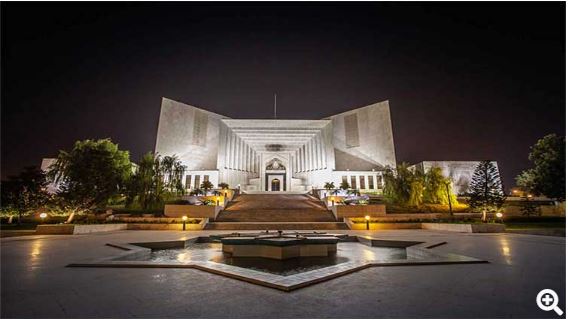ISLAMABAD: (HRNW) The Supreme Court of Pakistan on Tuesday reserved a verdict on the Pakistan Tehreek-e-Insaf (PTI) chairman’s plea challenging amendments to the National Accountability law.
A three-member bench comprising Chief Justice Umar Ata Bandial, Justice Ijaz ul Ahsan and Justice Mansoor Ali Shah heard the case.
During the hearing of the case, CJP Bandial observed that the top court will announce the “short and sweet” verdict on the plea soon.
Imran Khan’s counsel Khawaja Haris told the court that a lot of pending cases have been returned after the NAB amendments.
“Are there any sections in the amendments under which cases could be referred to another relevant forum,” the CJP remarked.
“After these amendments, a lot of NAB’s work has come to an end,” he remarked.
At this, Haris contended: “After the changes to the law, neither did the NAB have the authority to deal with the cases nor to send them to other relevant forums”.
At one point during the hearing, Justice Mansoor Ali Shah observed that there is no need for a law to refer cases to other forums.
The reason given for submitting this petition before the SC was stated to be “accountability”, remarked Justice Shah.
CJP remarked that the lack of clarity on crimes and state institutions being used for corruption was “upsetting”.
The top court then reserved the verdict, with the CJP saying, “We will soon announce a short and sweet verdict of the case.”
NAB law amendment
The NAB (Second Amendment) Bill 2021 states that NAB’s deputy chairman, to be appointed by the federal government, would become the acting chairman of the bureau following the completion of the tenure of the chairman.
The bill has also reduced the four-year term of the NAB chairman. After approval of the law, NAB will not be able to act on federal, provincial or local tax matters.
It has also set a three-year term for the judges of the accountability courts. Under the proposed law, it has been made binding upon NAB to ensure the availability of evidence against an accused prior to his or her arrest.
